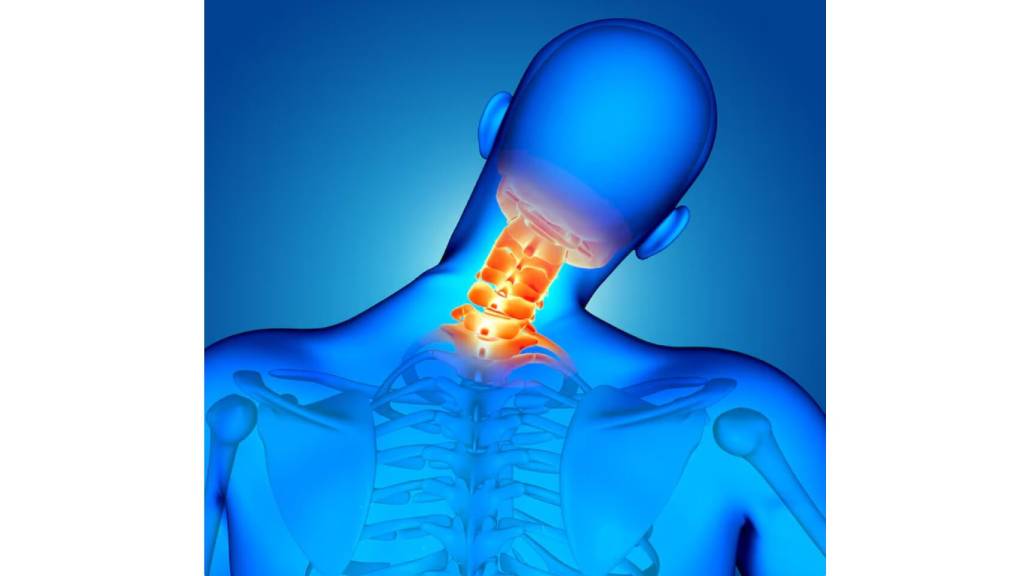What is Cervical Spondylosis?
Cervical spondylosis is commonly known as age-related wear and tear of the neck bones and joints. Think of it as the “rusting” of your neck due to years of movement, poor posture, or injuries. It may lead to stiffness, neck pain, or radiating pain in arms and shoulders.
Prevalence
Cervical spondylosis affects more than 85% of people aged 60 and above. However, early symptoms are now seen even in younger adults due to prolonged screen time and sedentary lifestyle.
Occurrence
- Begins typically after age 30–40
- Increases progressively with age
- Can also occur in younger individuals with poor posture, lack of exercise, or after neck injuries
Affected Male-Female Ratio
- Male: Female = 3:2
- Males are slightly more prone due to occupational risks and physical strain
Causes by Age and Gender
| Age Group | Common Causes | More Affected Gender |
|---|---|---|
| 20–30 yrs | Poor posture, gadget use | Equal |
| 31–45 yrs | Sedentary work, stress, weak muscles | Males |
| 46–60 yrs | Degenerative changes, lifestyle factors | Males |
| 60+ yrs | Natural ageing, disc degeneration | Both |
Role of Physiotherapy
Physiotherapy plays a crucial role in relieving symptoms, improving neck function, and preventing worsening. It focuses on pain relief, posture correction, strengthening, and mobility.
Benefits of Early Visit to Physiotherapy Department
- Early diagnosis helps avoid chronic pain
- Prevents need for medications or surgery
- Improves daily activities and quality of life
- Avoids long-term complications
How Physiotherapy Helps from Prevention to Rehabilitation
- Prevention: Ergonomic guidance, posture education, lifestyle correction
- Early Management: Manual therapy, stretching, heat/ice therapy
- Rehabilitation: Strengthening exercises, mobility training, return-to-work rehab
Takeaway
Cervical spondylosis is manageable and preventable. Early attention and physiotherapy can keep your neck healthy and pain-free well into old age.
If Neglected – Possible Complications
- Chronic neck pain and stiffness
- Radiating pain in arms, numbness
- Nerve compression leading to weakness
- Reduced quality of life and sleep disturbances
When to Seek Help?
- Persistent neck pain or stiffness
- Tingling or numbness in arms/hands
- Difficulty moving neck or doing regular activities
- Neck pain associated with headache or dizziness


